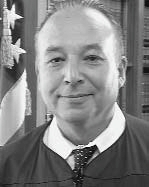
You can see the conditions under which the City is allowed to confiscate property after the break, but they seem to be essentially the conditions (notification, health hazards, storage for 90 days, etc.) that are already prescribed by LAMC 56.11. My superficial reading of the situation is that he’s ordering them to stick to what the law already allows, but now they have a federal judge ordering them to stick to what the law allows. After all, it’s one thing to have to follow the law because it’s the law. It’s another more serious thing entirely to have to follow the law because a federal judge is watching you to make sure you follow it. Anyway, that’s what I think is going on here.
The City, its agents and employees are hereby enjoined from:
1. Confiscating property in Skid Row or its surrounding areas, incident to an arrest or as part of a cleanup of an area where homeless people are located, absent an objectively reasonable belief that it is abandoned, presents an immediate threat to public health or safety, is evidence of a crime, or is contraband; and
2. Destroying property in Skid Row or its surrounding areas, absent an immediate threat to public health or safety, without maintaining the property in a secure location for a period of less than 90 days; and
3. Storing seized property from Skid Row or its surrounding areas in a facility not open during regular business hours; and
4. Failing to provide notice advising homeless individuals whose property is seized of the address where seized property is being stored; and
5. Storing seized property from Skid Row or its surrounding areas in a facility that does not clearly catalog and segregate property based on the names and identification, where available, of individuals from whom the property is taken; and
6. Storing seized property from Skid Row or its surrounding areas in a facility that is not accessible within 72 hours of seizure. Medication, medical equipment, and uncontaminated tents, sleeping bags, and blankets must be accessible within 24 hours of seizure or an individual’s release from custody, whichever is later.
7. Additionally, where the City plans to engage in a mass cleanup of an area in Skid Row or its surrounding areas, the City must provide 24 hours advance notice advising homeless people of the cleanup and possible seizure of property and advising such individuals to remove essential property that they do not want confiscated.
